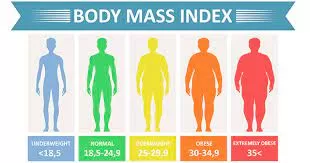In an era where social media is an integral part of daily life, a new study has revealed that young people are particularly sensitive to the feedback they receive from platforms like Instagram, with their moods significantly influenced by the number of ‘likes’ on their posts. This research, led by a team at the University of Amsterdam, highlights the pressing concerns parents and society have regarding the psychological well-being of the youth in a technology-driven world. The findings were published on October 23 in the journal Science Advances.
Heightened Sensitivity During Adolescence
As adolescents navigate the critical period of their development, they experience heightened sensitivity to both social acceptance and rejection. Wouter van den Bos, a member of the research team, noted, “Adolescence is a developmental period during which both reward and rejection sensitivity are particularly strong, and these have, respectively, been linked to increased impulsive behavior and depressive symptoms.” The researchers sought to understand how this sensitivity manifests in the context of social media.
A Comprehensive Research Approach
To investigate the relationship between social media feedback and mood, the researchers employed a three-pronged approach. They began with a large dataset of real-life Instagram posts, analyzing user responses to likes through a computational model. Next, they conducted an experimental study simulating social media interactions to observe changes in participants’ moods. Finally, an exploratory neuroimaging study examined how sensitivity to social media feedback correlates with differences in amygdala volume, a brain region associated with emotion regulation.
The collective evidence from these studies suggests that young people are indeed more responsive to social media feedback than adults, illustrating the profound impact these platforms can have on their emotional states.
The Paradox of Likes
The findings reveal a paradoxical situation: while receiving likes can foster feelings of connectedness and enhance mood, the quest for social approval can lead to compulsive app usage. Conversely, if young people do not receive the validation they seek, they may disengage from these platforms more quickly than adults, potentially resulting in a negative impact on their mood.
The Need for Interventions
Given the dual nature of social media’s effects on youth, the researchers argue for the implementation of targeted interventions to mitigate its negative repercussions. They recommend that social media platforms reconsider their incentive structures, shifting the focus from mere likes to fostering more meaningful engagement. Additionally, enhancing young people’s skills in emotion regulation within online environments should be prioritized over simply improving digital literacy, as the current generation is already adept at navigating digital spaces.
Addressing Mental Health Concerns
Study first author Ana da Silva Pinho emphasized the importance of understanding the implications of social media on young people’s mental health. “While social media plays an important role in fostering some aspects of youth development, such as identity formation and social connection, our study reveals that it may also present challenges, particularly relating to young people’s moods,” she stated. As concerns about mental health continue to grow, this research underscores the need for a deeper understanding of how youth engage with social media and the unique developmental aspects that influence their experiences.
In conclusion, while social media can be a powerful tool for connection and self-expression among young people, its impact on their mental well-being cannot be overlooked. By rethinking how these platforms operate and focusing on emotional resilience, society can help mitigate the adverse effects while harnessing the positive potential of social media for youth development.












